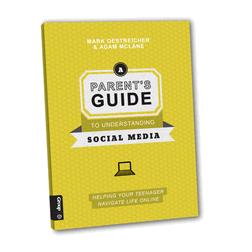 As part of our series about different types of youth work, this week we have an interview with Aaron Garth – a local government youth worker in Australia.
As part of our series about different types of youth work, this week we have an interview with Aaron Garth – a local government youth worker in Australia.
1. What type of youth work do you do?
Currently I am the Coordinator of Youth Services for Mitchell Shire Council, a small semi-rural council on the interface of Melbourne, approximately 40 km north of Melbourne.
I am also Director of Operations for Ultimate Youth Worker, an Australian based company that provides training, supervision and support to youth workers and their organisations.
2. What do you do in an average week?
Is there such a thing? I coordinate a small team of youth workers so I provide supervision sessions to them. We have team meetings, community consultations and PAPERWORK. Most recently we have been building a number of skate parks in the area involving project meetings, dealing with construction crews, consulting with young people and council officers, and writing dreaded reports.
With UYW we blog, write and record podcasts, run webinars and supervision sessions for individuals and groups. I spend around 20-30 hours per week on top of my full-time position with the council.
3. How long have you been doing this type of youth work?
Council just on 6 months and UYW coming up on three years.
4. What other types of youth work have you done previously?
- Drug and alcohol outreach
- Dual diagnosis rehabilitation
- Family services/Child protection
- Volunteer management
- Working with children of prisoners
- Youth homelessness; and
- Church based schools worker
5. What age range do you work with?
Young people – ages 10-25
Youth workers – my eldest client is about to turn 63
6. What’s unique about working for local government?
We are firmly based in the bureaucracy of local government. We are often stuck between council policy and community outcry. Many of our projects are community education in nature and provide an opportunity to inform young people on key issues. We also provide a large support role to other youth focused organisations.
7. What are some of the good things about your type of youth work?
Working in local council means most of my work is place based. This gives me the opportunity to develop strong links to the community, which I can then leverage to help my young people. I know all the schools, the community groups and the young people who frequent the services and skate parks in the area. I have freedom to develop programs to fit the needs of young people in their specific context.
8. What are some of the challenges of local government youth work?
Being over 100 km from the city, we sit in a peri-urban corridor; not quite city but not quite country anymore either. There is a huge lack of transport options and services for young people. Because of this we are the first point of contact for many of the 7,000 young people and their families when it all goes pear shaped. It is also an area that is difficult to attract funding as it is neither country nor city.
9. Why are you passionate about this type of youth work?
It is a type of youth work which sits closest to what I learnt about at uni. Young people are my core client. It is generalist. It provides an opportunity and outlet to advocate for the betterment of young people. I also love the ability to develop a whole area of the community through the place-based focus.
10. What would you recommend for someone wanting to get into local government youth work?
Get a solid understanding of community development principles and of public participation. The IAP2 framework is known throughout local government in Australia and is held as best practice. Be keenly aware that your young people are your client and advocate at all levels for their interest first and foremost, even if that puts you in an awkward situation.
11. Is there any special training or qualifications required?
Tertiary qualifications of at least diploma level are highly sought after, but experience in a council environment is worth more than a qualification.
12. Is there anything else you’d like to share?
Youth work in a local government context is complex in its components, yet simplistic in its form. You are there to provide the most opportunities for your young people that you possibly can. Be passionate… it will guide your work. Get training… it will frame your work. Get support… -you will need it.
Aaron Garth is the Director of Operations for Ultimate Youth Worker – an Australian company that provides high quality professional development for youth workers to build and maintain longevity in the field. Aaron has worked as a youth worker in a number of settings including local church, street drug and alcohol outreach, family services, residential care and youth homelessness since 2003. Aaron is a regular speaker at camps, retreats, & youth work training events and is a dedicated volunteer with his local church youth ministry. Aaron is a graduate of RMIT University and an alumnus of their youth work program. He lives in Melbourne, Vic with his wife of 5 years Jennifer & their daughters Hope and Zoe.
Aaron Garth – Cert IV AOD, B.Soc.Sci (Youth Work)
Director of Operations
Ultimate Youth Worker
‘Development for the future’
PH: +61. 430 064 165
M: P.O. Box 3114
Eltham, Vic, 3095
E: aaron@ultimateyouthworker.com.au
Facebook: www.facebook.com/ultimateyouthworker
Twitter: @Ultimate_YW
Blog: http://ultimateyouthworker.blogspot.com.au/
If you’re a youth worker and would like to take part in this series, please contact us.
You can also connect with us by:
- Signing up to receive our posts via email
- Following us on Twitter
- Liking us on Facebook
- Signing up to our RSS feed

 If you’re looking for some St Patrick’s Day activities, check out these 5 ideas that are great for doing with kids and teenagers:
If you’re looking for some St Patrick’s Day activities, check out these 5 ideas that are great for doing with kids and teenagers:
